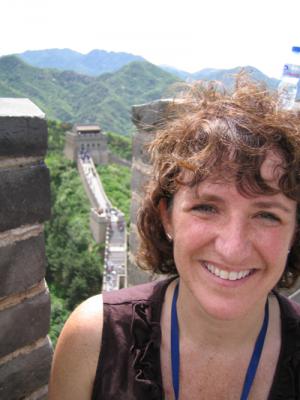Event Date:
Event Location:
- Harold Frank Hall 1132
Carleen Maitland
Penn State University
Hosted by the Dept. of Computer Science
People displaced by storms or armed conflict face several challenges in information access, including changing network connection modes as well as changing information needs. At the same time, service providers charged with meeting their needs, also face challenges in collecting, sharing and disseminating information.
In this talk I discuss the findings of a recent workshop on ICTs in support of displaced persons. Drawing on examples ranging from Syrian refugee camps to the urban context of refugees in Cape Town, South Africa, I provide a detailed discussion of displaced persons’ and service providers’ information needs. This discussion lays the groundwork for a social, computer and information science research agenda targeted to these needs. The talk concludes with a discussion of the limitations of enhanced technologies and social theories, calling attention to issues requiring political and diplomatic solutions.
Bio
Carleen Maitland is Associate Professor of Information Sciences and Technology at Penn State University. Her research examines the effects of international and inter-organizational contexts on access to and use of information and communication technologies (ICTs). Her work has been conducted in the U.S., Europe, Africa, and the Middle East and focuses on issues of humanitarian relief and international development.
To date, her research findings, made possible through grants from the U.S. National Science Foundation (NSF), IBM, the U.S. National Institute of Standards and Technology (NIST), the European Commission, and the Japan Foundation, among others, have been reported in over 50 refereed articles in journals and conference proceedings.
During 2010-2012, Dr. Maitland served as a Program Manager in NSF’s Office of International Science and Engineering (OISE) as well as its Office of Cyberinfrastructure. In this capacity she managed grants and engaged in Science and Technology (S&T) diplomacy for countries in the Middle East and applied her knowledge of organizational coordination to foster interdisciplinary research programs within the Foundation.

